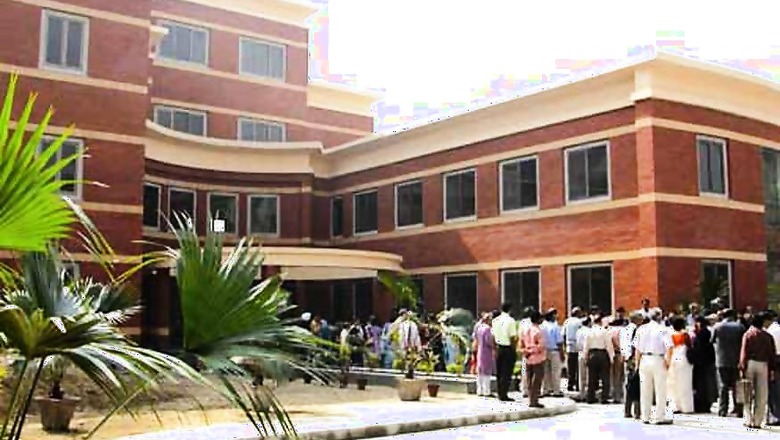
views
New Delhi: The Delhi University has signed a controversial tripartite memorandum of understanding (MoU) with the University Grants Commission (UGC) and the human resource development (HRD) ministry on its funding model, a move that has prompted outrage from professors. The Delhi University Teachers’ Association, which had been protesting for months in anticipation of the move, called it a step towards privatisation.
The agreement requires universities to continuously increase the internal (self-generated) financial resources through fee hike, shift to revenue-earning commercial courses, engagement with other commercial activities and manage a greater part of their research activities through extramural funding, said DUTA president Rajib Ray.
The MoU is a requirement as per the new General Financial Rules (GFR) of the Centre under which all institutions that are availing of more than Rs 5 crore in grants from the government have to sign the pact, clearly stating the purposes for which the money would be put to use, said a senior official from the HRD ministry.
“This is to ensure basic accountability to the country since public resources are being used. Every institution in this country has signed the MoU. So has DU. Anyone who sees the MoU would find that there is nothing objectionable in it,” the official added.
A statement from DUTA said that the tripartite MoU initiates steps towards the privatisation design that forms the core of the draft National Education Policy (NEP).
“The draft NEP 2019 aims to reduce the number of higher education institutes while increasing the size of surviving institutions. They will be governed similarly by a privatised Board of Governors and have to have a Development Office to secure sources of funding other than government funding,” said the teachers’ body.
The DUTA has announced that it will broaden and intensify the struggle against the NEP and any bid to privatise education through the tripartite MoU. The teachers’ body said that such steps have a significant impact on the content of courses and direction of research by coercing universities to become dependent on the market.
Teachers have been protesting against the signing of the agreement for the past one year. They say there is no clarity about which version of the MoU had been inked – the original draft or the one amended after being passed by the Executive Council in July 2019.
The DU teachers have accused the vice-chancellor, Yogesh K Tyagi, of not holding consultations and giving in to the “arm-twisting tactics” of the government.
According to the release issued by the DUTA, the MoU by the union government “bypassed consultations with the academia and brought in through Rule 229 (xi) of the General Financial Rules 2017 a requirement on the part of the MHRD, UGC and each of the Central Universities to ensure that each Central University expands its student intake every year and finances an increasing part of its expenditure.”
The MoU requires central universities to meet their infrastructural needs – routine as well as on account of enforced expansion – through loans from Higher Education Financing Agency (HEFA), an instrument created through budget announcement to push universities toward self-financing, said the statement.



















Comments
0 comment